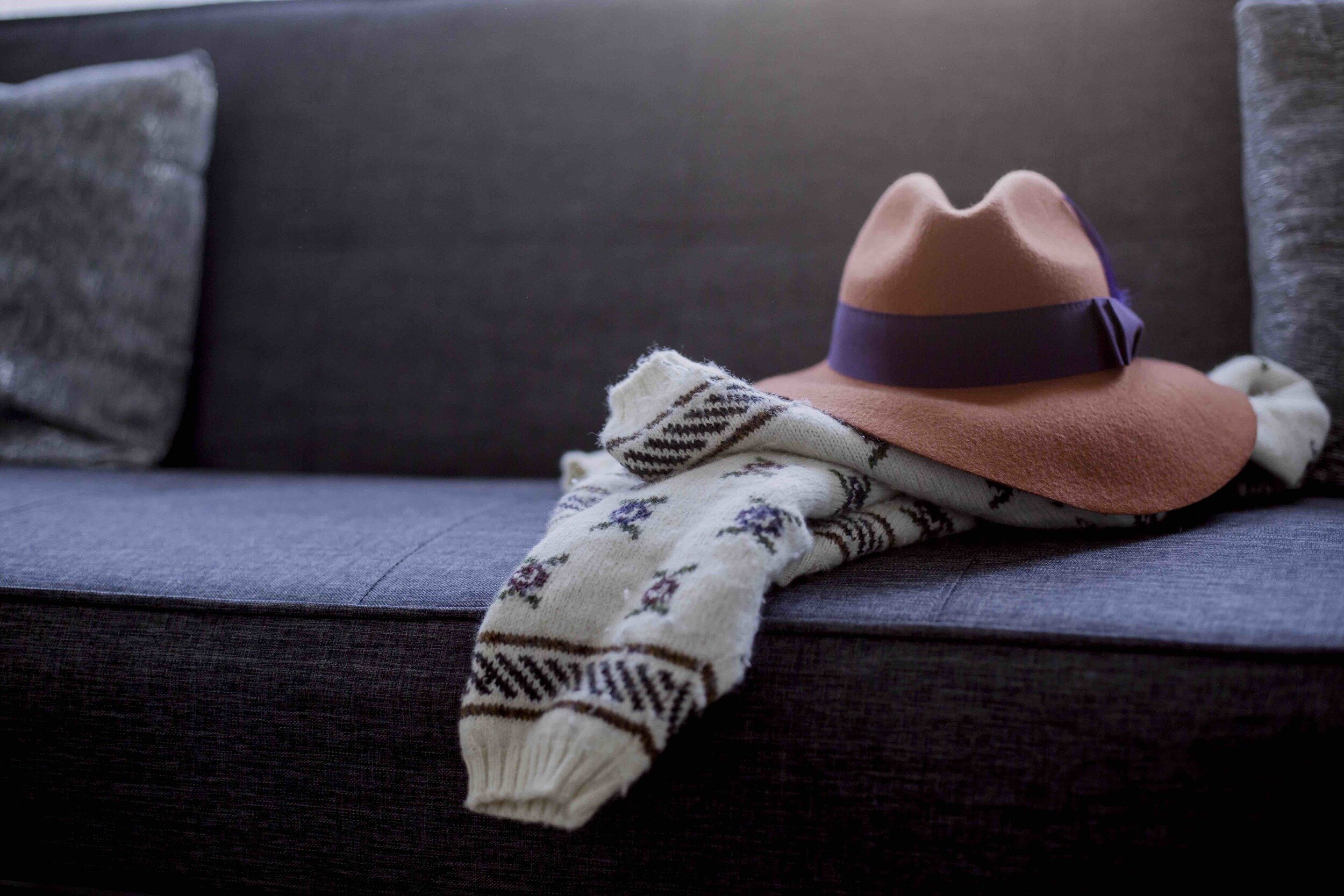
Conscious Living 101: Building An Ethical Wardrobe
You have decided you want to start shopping more consciously. You want to know where the items you buy come from and learn about the story behind them. Just by making that decision, you’re already making the world a better place!
When starting to learn how to shop ethically, your wardrobe is a great place to start – as opposed to say, electronics or kitchen appliances for example. These days, there are a lot of great sustainable clothing brands that are producing responsibly, and as you take baby steps toward a more conscious lifestyle, your clothing is a logical place to begin.
Your transition to an ethical wardrobe will be a process, and if you do it right, it will probably take years! So if you’ve been procrastinating because you think you need to invest thousands of dollars to buy an entirely new wardrobe filled with pieces from transparent brands, you don’t! Here are some things to remember as you analyze your current shopping habits and start to reallocate your clothing budget to support more ethical and sustainable brands:
1. OLD CLOTHES ARE ETHICAL CLOTHES
You might be tempted to look at your closet, throw everything out, and start from scratch, purchasing a whole new ethical wardrobe. Don’t. There is no shame in keeping clothes that were made unethically. In fact, by keeping those old items, you’re keeping waste (and harmful dyes and other materials) out of landfills and third world countries.
Get creative with your old clothes. Challenge yourself! Honestly, it can be fun to look at your closet, think to yourself, “I have nothing to wear!” only to come up with a brand new outfit out of what you already have.
Shopping thrift or vintage is a really great way to save money, bring new life to old clothes, while again reducing waste. Another way to thrift is to arrange a clothing swap with your friends. That really cute top you’ve envied every time your friend wears it – she might be sick of it by now!
When you are ready to get rid of some of your old clothes, don’t throw them away. If none of your friends want them, give them away or sell them online to someone who will again bring them new life. Repurpose them into rags instead of buying more washcloths or paper towels. Donate them to a women’s or homeless shelter, which tend to be less wasteful than Goodwill or Salvation Army due to the sheer amount of donations they receive. For more info about what happens to our donated clothing, read this.
2. NEW CLOTHES ARE NECESSARY CLOTHES
Think of the last three times you purchased an article of clothing. Did you really need that item? (The answer might actually be yes and that’s okay!) However, we’ve gotten ourselves into the habit of thinking we need a new item, when reality is that we actually don’t. Worldwide, we buy 400% more clothing than we did 20 years ago. Where clothes used to be something we invested in, something that had life cycles and would even be passed down, they are now just items to use a few times, throw away, and be replaced with something else.
A crucial part of shopping consciously, however, is learning how to establish a habit of shopping out of necessity, rather than out of boredom, because you “have nothing to wear,” or for retail therapy. We have to break the habit of constantly rotating our wardrobes and start reassessing how we consume. Capsule wardrobes are perfect for this; by focusing on simplistic, universal pieces that you can dress up or down, you can essentially do more with less. When we start to train ourselves to value quality over quantity, we realize that by investing in better made products that last longer, can be repaired, and are more timeless, we can actually even save money in the long run.
3. KNOWLEDGE IS POWER
I want to challenge you to start asking more questions than you ever have. Start researching your favorite brands from whom you’d usually buy. Resources like Project Just have done a lot of research for you, by rating some of the top brands and giving you information about how ethical their practices are.
At first, it might seem difficult to shop more consciously when it comes to clothes. You can’t just stop at the mall and try some things on and take them home that day. You have to plan ahead if you need a new outfit for an event or your new job. However, resources like The Good Trade and Freestate exist to make it easier – to share about all of the amazing brands (and there really are a lot of them!) that are taking care of their employees, that value transparency in the supply chain and sustainability for the environment, AND are still affordable!
Remember that as consumers, we have the power to vote with our dollars, and to tell clothing brands what we want from them. We can decide that the people making our clothes deserve to be respected and treated fairly, and we can choose to change our shopping habits to reflect our respect for humanity.
Abigail Driscoll is a contributor to The Good Trade and the founder of Freestate, a resource that makes it easier for regular consumers to shop and live ethically . She lives in Cincinnati, OH and has a Bachelor’s degree in Psychology with experience in mental health, sales, and freelance writing. You can say hi on social media at @abigaildriscoll.


